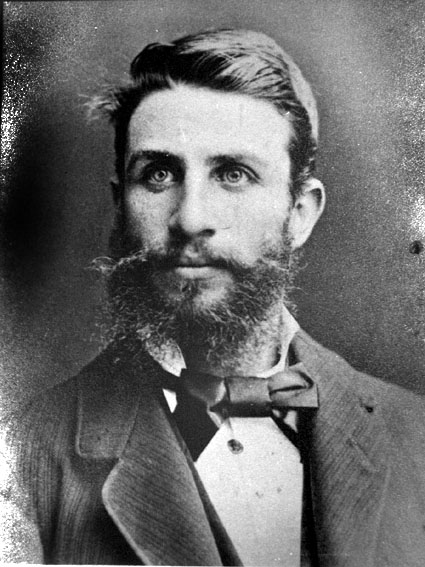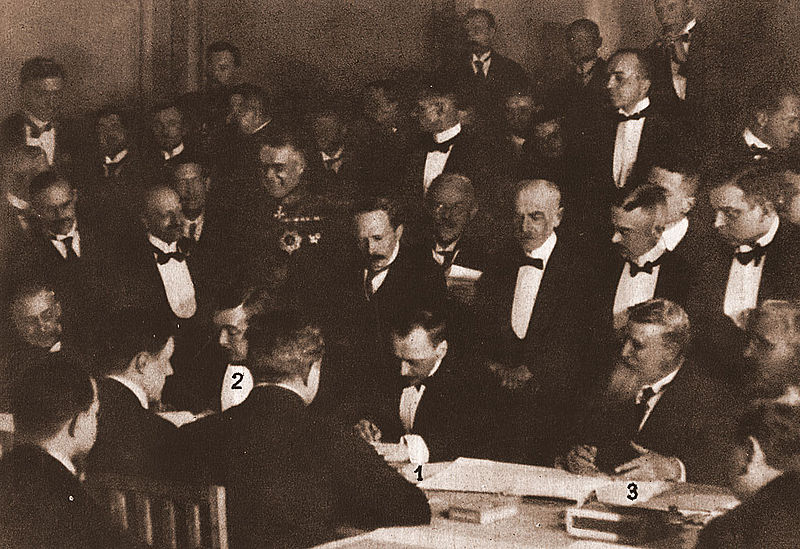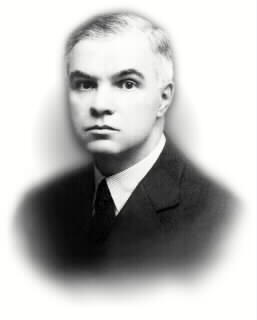<Back to Index>
- Prime Minister of Bulgaria Vasil Hristov Radoslavov, 1854
- Ambassador of Bulgaria to Austria - Hungary Andrey Slavov Toshev, 1867
PAGE SPONSOR


Vasil Hristov Radoslavov (Bulgarian: Васил Христов Радославов) (27 July 1854 – 21 October 1929) was a leading Bulgarian liberal politician who twice served as Prime Minister. He was Premier of the country throughout most of World War I.
Born in Lovech, Radoslavov studied law at Heidelberg and became a supporter of Germany from then on. He became a political figure in 1884 when he was appointed Minister of Justice in the cabinet of Petko Karavelov, also holding the position under Archbishop Kliment Turnovski. He succeeded Karavelov as Prime Minister in 1886, a brief reign that was marked by corruption and ultimately a split in the Liberal Party, with a Radoslav Liberal Party formed in 1887 as a grouping for right wing liberals. Radoslavov was noted for his strong support for friendship with Austria - Hungary.
He returned to government in 1899 as Minister for Internal Affairs in the government of Todor Ivanchov, although after this he remained out of office until 1913 when he returned as Prime Minister. His anti - Russian rhetoric impressed Ferdinand who worked closely with Radoslavov in shaping foreign policy. He secured a large loan from Germany and Austria - Hungary in July 1914 but also managed to delay Bulgarian entry into the War. His popularity fell after Bulgaria officially entered the War, however, with money and resources now directed fully to the war effort. As Prime Minister he oversaw the occupation of Dobruja in 1916 with the aid of German General August von Mackensen, although the move lost him some support from the German government as they wanted some of the territory for themselves. His government remained in office until June 1918, when the more moderate Aleksandar Malinov was recalled in the hope of brokering a favorable peace deal, with Radoslavov blamed for the failure of Bulgaria to gain full control of Northern Dobruja in the Treaty of Bucharest (the region being placed under joint Bulgarian, German and Austrian administration). By this point the Radoslavov government had become a by-word for corruption and subservience to Germany.
Radoslavov fled Bulgaria after the War, going into exile in Germany. In 1922 the regime of Aleksandar Stamboliyski sentenced him to death in absentia for his part in the defeat. He was pardoned in 1929, the same year in which he died whilst still in exile in Berlin, Weimar Republic, on 21 October. On 3 November, he was buried in Sofia.

Andrey Slavov Toshev (Bulgarian: Андрей Славов Тошев) (16 April 1867, Stara Zagora – 10 January 1944) was Prime Minister of Bulgaria in 1935. He was also a Bulgarian scientist and a diplomat.
Appointed by Tsar Boris III, Toshev was chosen for his unflinching loyalty in the uncertainty following the military coup of Zveno in 1934. He headed a purely civilian cabinet after a period of military rule and was in effect a puppet of the Tsar. His Premiership proved short lived when the elections of November 1935 were won by Georgi Kyoseivanov.
Toshev also served in diplomatic roles as the Bulgarian ambassador to Serbia from 1909 to 1913, in which capacity he helped bring about the formation of the Balkan League, and also as the Bulgarian ambassador to Constantinople from 1913 to 1914.